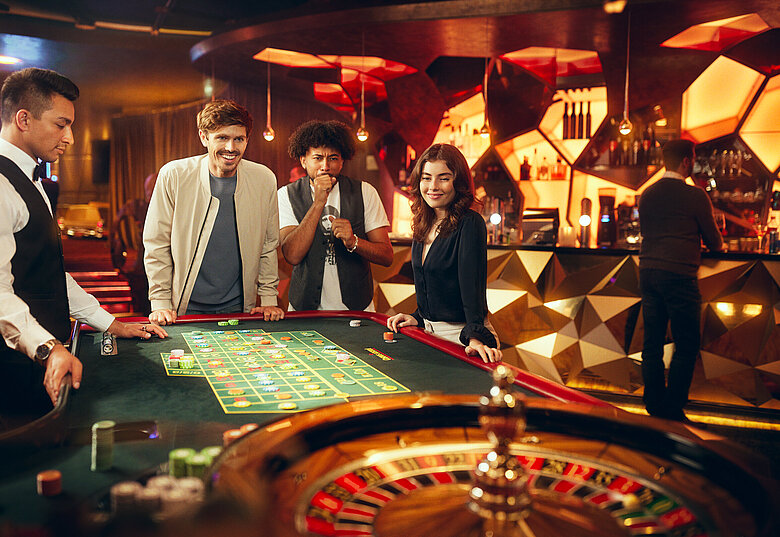
In the world of gambling, where chance and strategy intersect, a unique tapestry of beliefs manifests—one that braids luck, fate, and the enigmatic nature of casino games. Casinos, bustling with excitement and anticipation, are not just places for placing bets; they are also arenas where superstitions thrive. From the novice player to the seasoned gambler, these mysterious practices often shape how individuals approach the games they play, believing that their actions can influence the outcome in ways that go beyond mere probability. non GamStop casino
As players gather around roulette wheels, blackjack tables, and slot machines, the atmosphere is thick with stories of lucky charms, rituals, and codified behavior that defy logic yet provide a sense of comfort. Whether it’s wearing a specific outfit, following a particular sequence of bets, or even avoiding certain numbers, the attachment to various superstitions reflects a deep-rooted desire to manipulate the uncontrollable. This article delves into the captivating world of casino game superstitions, exploring the beliefs that both entertain and mystify those who dare to play.
Historical Roots of Superstitions
Betting games have long been interwoven with an array of superstitions that trace to ancient societies. The beginnings of these ideas can be associated to humanity’s intrinsic need to manage the random outcomes connected with chance and randomness. In early civilizations, activities of uncertainty were often linked to religious practices. Gamblers would seek favor or ask for favor from gods, believing that their actions could influence the odds in their favor. This groundwork laid the basis for the variety of superstitions that proliferated as gambling evolved over centuries.
During the Middle Ages, betting became a widespread hobby across the continent, and with it, a colorful tapestry of superstitions developed. Players adopted different rituals and charms, believing they could change the results of games. The importance of numbers, in particular, emerged to manifest in superstitions pertaining to card games and dice. The number seven was often considered lucky, while different numbers carried unfortunate connotations. These ideas mirrored the social contexts of the time, adapting as they moved through generations and changed to different gaming environments.
As gaming establishments developed in the 1600s, particularly in Italy and France, the atmosphere surrounding betting became saturated in mystery. The growing availability of casino activities allowed for the spread and variation of superstitions among players. Concepts like fortunate charms, special seating locations, and rituals gained importance, creating a special culture within gambling establishments. As these traditions continued to thrive, they became essential to the essence of casino games, illustrating how history and tradition shape the notions that influence how participants interact with chance.
Common Gambling Myths
Beliefs surrounding casino activities are plentiful and diverse, reflecting the dreams and fears of players as they engage in random games. One of the most prevalent views is that specific digits bring fortune or bad luck. For example, the digit seven is often seen as a lucky number, frequently sought after by players looking for a positive result. Conversely, the digit 13 is routinely considered unlucky, leading many players to steer clear of it during their gaming periods.
A frequent belief relates to practices that players believe can influence their chances. It could be blowing on dice before a throw, using a specific hand to place a bet, or even putting on particular items of attire, many individuals feel that these rituals can sway luck in their benefit. These practices offer a feeling of control in an otherwise unpredictable environment, strengthening the idea that luck can be created through individual convictions and customs.
Finally, the ambiance and atmosphere of the casino itself adds to myths. Many gamblers suggest that the presence of certain icons, such as four-leaved clovers or fortunate tokens, can enhance their odds of winning. Additionally, players might hold to the belief that winning streaks can be interrupted by mundane events, such as a person walking past or a accident at the gaming surface. The shared environment in a gambling house can amplify these superstitions, creating a communal culture of superstitions that goes beyond individual encounters.
Impact of Superstitions on Players
Superstitions play a important role in the mindset of casino players, often influencing their behavior and decision-making. A lot of gamblers think that fortune can be influenced through different rituals, such as donning a talisman, selecting specific colors, or steering clear of particular digits. This dependence on superstitions can create a feeling of authority in an environment that is intrinsically unpredictable. Players often feel more confident and involved when they feel that their actions could sway the outcome of a game in their advantage.
The impact of these superstitions extends beyond singular players, affecting the overall atmosphere within the casino. For instance, a player who holds the belief in the luck of a particular slot machine might draw a gathering, as others are fascinated by their apparent luck. This collective belief can heighten excitement and create a lively environment, leading to an engaging experience even for those who may not necessarily be superstitious. The excitement around certain games can lead to increased participation and extended playing sessions, supporting the casino’s lively social scene.
In some instances, superstitions can lead to detrimental effects for players. Depending too much on rituals can result in bad gambling decisions, as some may ignore basic strategies in favor of unfounded beliefs. Additionally, the pressure to perform rituals may heighten anxiety and stress levels, detracting from the enjoyment of the experience. Ultimately, while superstitions can enhance the excitement of playing casino games, they can also lead to poor choices that overshadow the enjoyment and amusement intended in the casino experience.